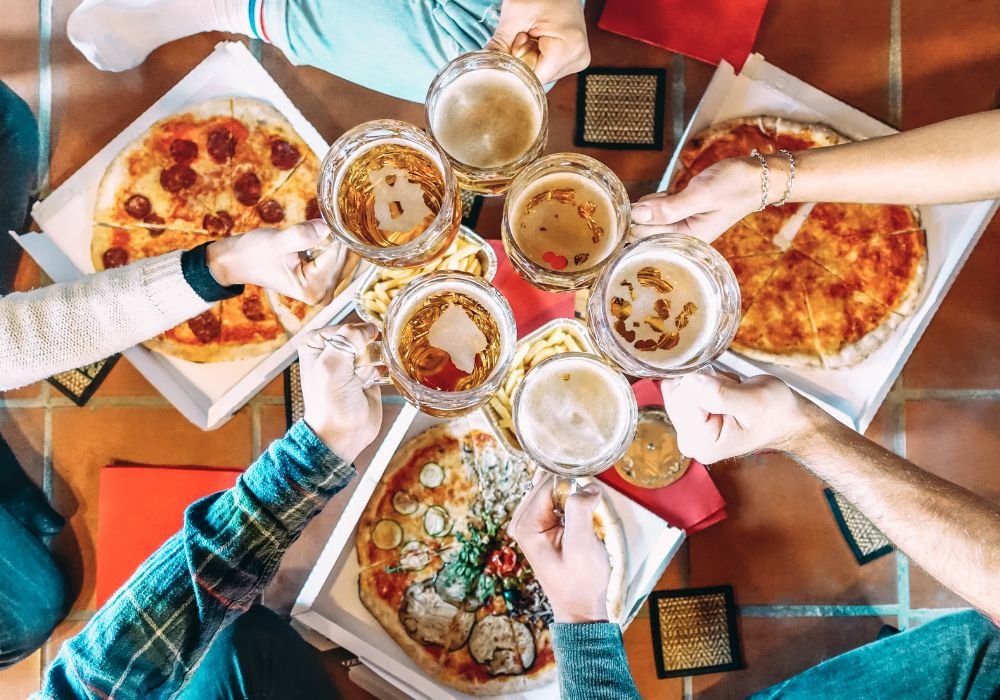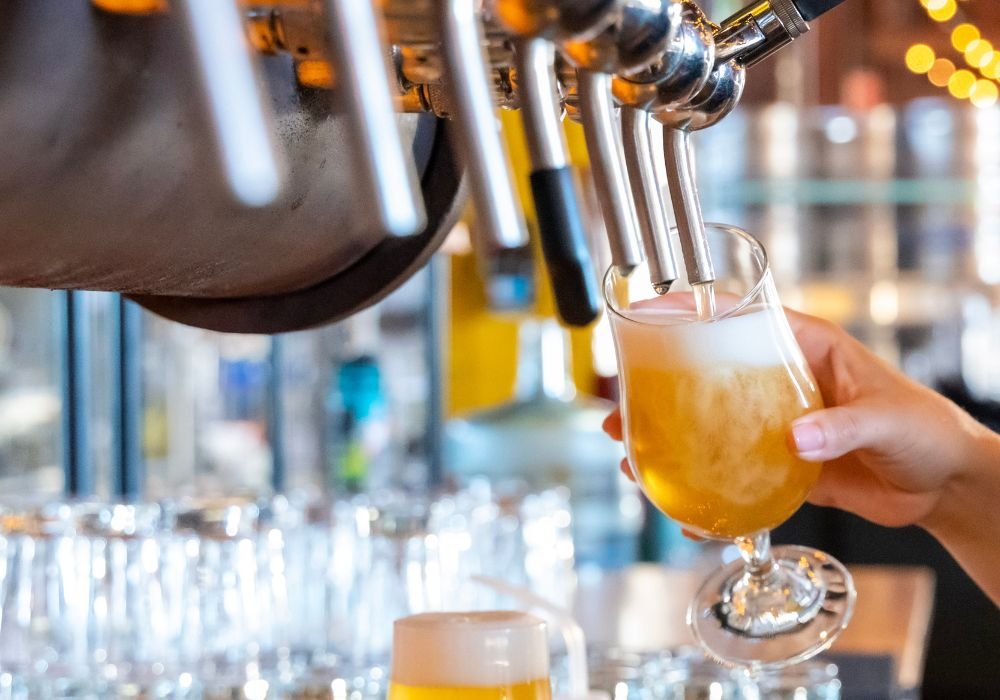
Shifting trends and adopting different ways of living have always been the scope of change in an ever-changing world. As we divert our focus in terms of the drinking culture in India, it has led to significant growth. As we shed light on the culture of drinking our prime narrative is “mindful drinking culture.” In recent years, India has witnessed a significant spike in the consumption of craft beer and microbreweries, marking a significant shift towards a mindful drinking culture.
The Indian alcohol consumption landscape has been predominantly concentrated by spirits like whisky and rum, as well as popular mass-produced lagers. However, the emergence of craft beer has transformed the way Indians perceive and consume alcohol, leading to the inclusion of beer in the fabric of modern Indian lifestyle. Statistically, as per the India Craft Beer Market report, the India craft beer market size is projected to exhibit a growth rate (CAGR) of 24.41% during 2024–2032, showcasing a promising change in the future consumption pattern.
Rise of Microbreweries:
Returning to the origins to observe the development of microbreweries dating back to the early 2000s triggered the establishment of microbreweries in India with a concept to introduce exclusive and small-batch artisanal beer that is characterized by its unique taste, diversity, and style. These microbreweries were different from traditional mass-produced beers whose taste was similar but provided a wide range of choices such as pale ales, stouts, and wheat beers among others. This eventually resulted in locally brewed fresh beer being made available which found resonance with consumers thereby leading to its rapturous growth across Bengaluru, Mumbai and Delhi.

Cultural Shifts:
Today’s lifestyle is characterized by increased burdens and demanding regimes where every person is looking for a relaxed and peaceful environment at the end of the day. This idea therefore has led to an upsurge in beer consumption in India which has traditionally been associated with specific occasions or social settings, making it a go-to choice for a beverage associated with daily life.
Nevertheless, craft beer has broken these barriers appealing even to female and young adult demographics. Social hubs have emerged in brewpubs and taprooms. Where people gather not only to enjoy the clinging of beer glasses but also to engage in conversations, attend events, and explore new culinary experiences. According to the report drawn by Rakuten Insight, 58.2 percent of Indians prefer craft beer over regular beer due to its better taste.
Economic Impact:
The craft beer industry has seen significant economic implications from its growth with regard to job creation, tourism and revenue generation. People have been able to showcase their entrepreneurship skills and creativity through microbreweries. Additionally, there has been the rise of beer tourism whereby people travel to different towns in search of local brews and vibrant brewery scene experience. Moreover, they have led to a spike in the growth of the essence they carry.
Challenges and Opportunities:
In India however, despite its growing popularity as a beverage choice for many consumers, it still faces some challenges including regulatory hurdles, taxation issues and limited distribution channels. The COVID-19 pandemic also wreaked havoc on the sector leading to temporary closures and adoption of alternative business models by many breweries. Nevertheless, within these challenges lie opportunities for innovation and growth. Investment in infrastructure that can accommodate the expansion of breweries’ operations follows due to increased demand for craft beer globally. Unique beer varieties made using ingredients that are specific to each region have been made through collaborations between breweries, restaurants, and local artisans hence enriching what is brewed.
Cultural Integration:
The beer’s smooth integration into different parts of contemporary Indian life has affected social practices, entertainment and food. At luxurious restaurants, you can find a menu with foods that are to be taken when taking beer while bakeries have desserts made from beer. Besides, the way beer is represented in popular culture and advertising has changed to reflect it as a lifestyle choice rather than an ordinary drink.
To sum up, craft beer in India has totally revolutionized how people consume alcohol which is now deeply entrenched as part of modern Indian living. In today’s day and age, beer cannot be considered just an alcoholic drink; it is a lifestyle that imitates current societal attitudes and ambition. As it advances economically and culturally into the 21st century, India’s identity and social structure are likely to be influenced by its escalating role within the country.
Nevertheless, there are certain cultural and legal barriers that still hinder Indians from consuming beer. As far as Alcohol consumption especially is concerned among some orthodox communities; social stigma continues to affect consumer patterns and community standards. This has also resulted in forming regulations in certain states and led to the emergence of taxation policies which possess logistical hurdles for breweries and limit the availability of craft beer in certain regions and areas.
About the Author
 Vedant Kedia, Chief Growth Officer, MEBL
Vedant Kedia, Chief Growth Officer, MEBL
The 25-year-old is a dynamic leader hailing from a family with a rich legacy in the alco-bev industry. He possesses great leadership skills along with a deep knowledge of various industry trends that help in the overall growth and development of the company. With his attention to detail and passion for storytelling, Vedant leads marketing efforts to connect with customers and drive business growth.













